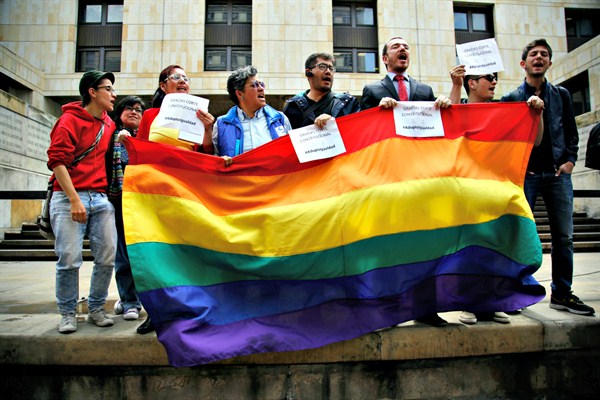Last month, Colombia’s Congress rejected a referendum that would have prohibited same-sex couples from adopting children. The measure had previously passed the Senate but was defeated during its first debate in the lower chamber, the House of Representatives.
LGBT activists hailed the vote as a remarkable affirmation of the rights of same-sex couples in Colombia, where legal victories for same-sex marriage, adoption rights and military service have made Colombia central to what many have called a “gay rights revolution” that has swept through Latin America over the past decade.
Yet in a puzzling turn of events, the momentum in favor of further legal and political inclusion for LGBT Colombians could be threatened by the historic peace process underway to end the country’s bloody, 52-year civil war. The peace agreement between the Colombian government and the guerrilla group known as the Revolutionary Armed Forces of Colombia, or FARC, was the result of four years of internationally sponsored negotiations in Havana; it reflects a monumental achievement and the most promising path forward to end decades of armed conflict. But the difficult, complex process of implementing peace creates new opportunities for anti-LGBT opponents to exert influence and define a more exclusionary future for the country.

